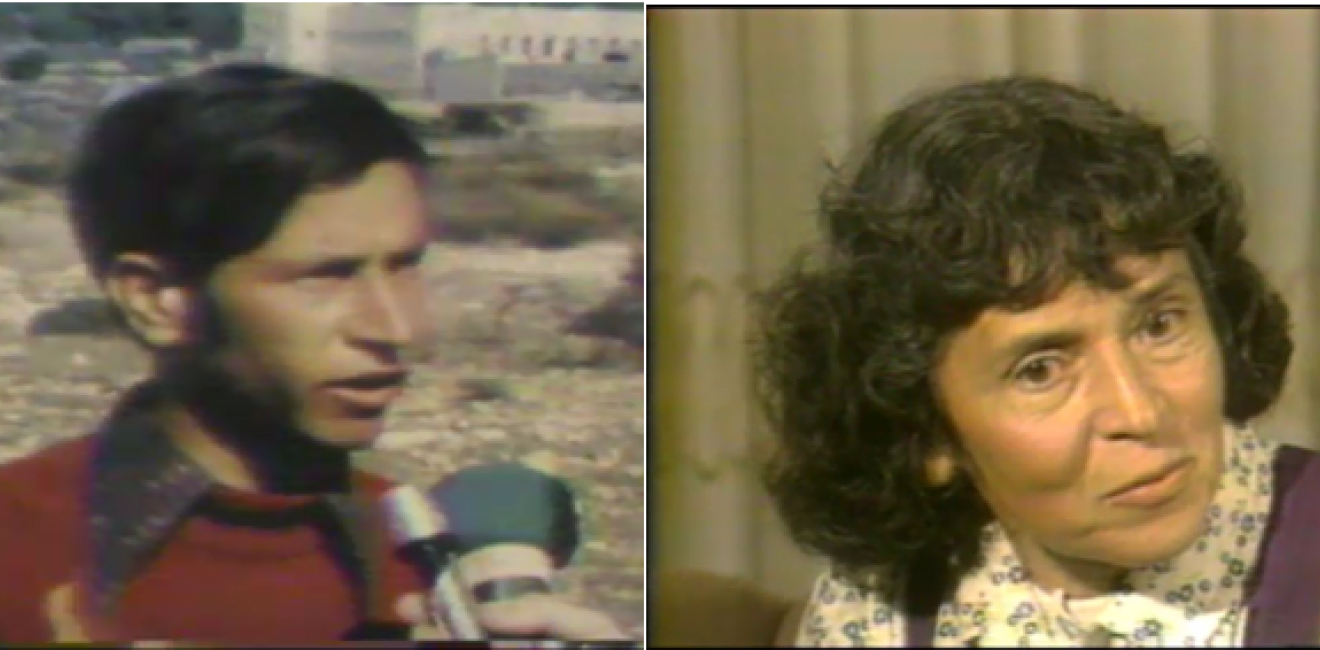The Jerusalem Decision and Middle East Peace
John Martin recalls two people on either side of the Jerusalem decision, whom he interviewed 40 years earlier.

A blog of the History and Public Policy Program
John Martin recalls two people on either side of the Jerusalem decision, whom he interviewed 40 years earlier.

The day the United States declared Jerusalem the capital of Israel, I thought of two people who had suffered on opposing sides through decades of strife between Israelis and Palestinians.
As an ABC News Correspondent, I met them and reported their stories in 1977, when Anwar Sadat visited Jerusalem on his way to an Egyptian-Isralie peace treaty, and five years later, in 1982, when Palestinians were still looking to recover land lost in the June, 1967 Six-Day War.
Both Hussein Tamimi, a young Palestinian teacher, and Sharona Tel-Oren, a talented Israeli musician, had been wounded directly and indirectly in the region's turmoil, which served as a bloody backdrop to the Cold War.
While the Soviet Union and United States maneuvered behind the scenes supporting Egypt and Israel, respectively, the two countries engaged in deadly combat. "The October War," Sadat said in the Knesset, "should be the last war." The Egyptian President said he was on a "sacred" mission because "the alternative is horrible." Just four years earlier, by one estimate, 18,000 Egyptians and Israelis died in 19 days of battle.
Ultimately, Egypt and Israel signed a peace treaty that has held for 40 years. But left in its wake are the unresolved issues of a Palestinian homeland, the growth of Israeli settlements, and the location of a capital or capitals for two peoples living side-by-side.
I wondered what Tamimi and Tel-Oren would say of President Trump's decision to accept Israel's claim of Jerusalem as its capital. Did it ease their pain or increase it?
In 1977, Tamimi, 31, found his family's West Bank property occupied by armed Israeli settlers just hours before Sadat arrived.
"While they are waiting for Sadat," he told me, "they are occupying and taking by force my land, which is my land and I want to die in it and I want to give my life to it."
Now, 40 years later, almost to the week, I discovered that he had passed away in 2002. A village neighbor told me by telephone that he died after trying for many years without success to regain the property.
In 1977, Tel-Oren applauded Sadat's visit. But four months later, she lost her 14-year-old son Imre when Palestinian terrorists murdered 38 Israelis, including 13 children, near Haifa.
"These people are shooting at us and you what was in my mind?" she told me, "Sadat, where are you? Is this the result of your visit?"
Now, at the age of 87, Tel-Oren is winding down a career in music and literature.
President Trump's decision elecrified her.
"I am goose-pimpled-thrilled with Trump's boldness and optimism!" she wrote in an email, "and I'm sure my Imre would feel the same way."
The decision has drawn warnings that the United States has stumbled into dangerous territory, planting irreversible doubt about its willingness to work reliably for both sides in future negotiations.
For Tel-Oren, however, it seems the president has fulfilled a promise she saw as broken in the wake of Sadat's visit 40 years ago.
Disappointed by the twists taken by Egypt, Israel, and the United States in 1977, she condemned the result five years later, saying simply: "A lot of things they said were going to happen didn't happen."
Now, based on wide-spread Palestinian rejection of the Trump decision, it would not surprise anyone if Tamimi, were he alive, might make the same remark as Tel-Oren: "A lot of things they said were going to happen didn't happen."


A leader in making key foreign policy records accessible and fostering informed scholarship, analysis, and discussion on international affairs, past and present. Read more



